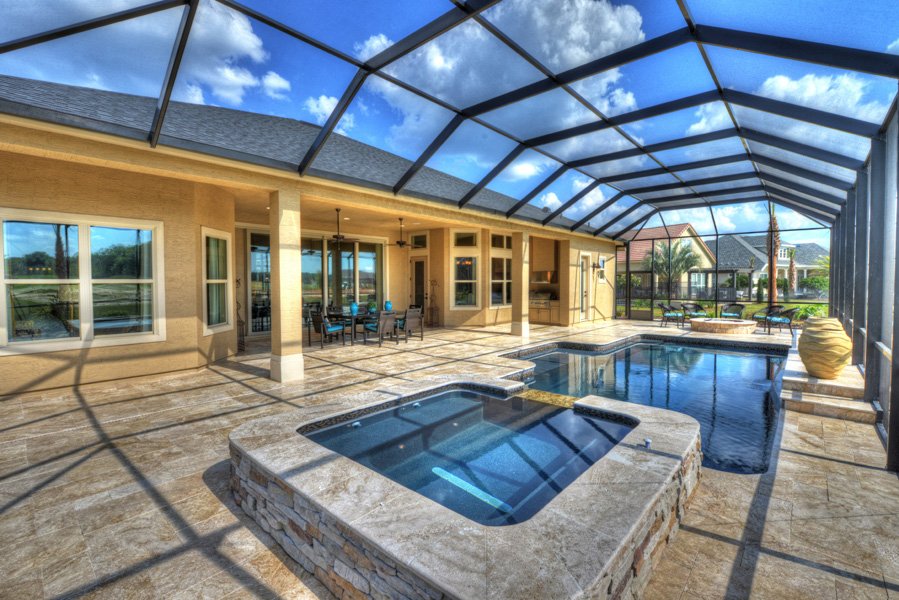A shimmering pool beyond the back door is a prerequisite for many new Florida homeowners. Whether cooling off, turning workout laps or using it as a beautiful party backdrop, residential pools are crucial to the Florida lifestyle.
But, there are more choices than the traditional chlorine pool. Saltwater pools, a popular option, are both environment friendly and cost effective. Consider your preferences before making the salt-or-chlorine decision.
It’s more expensive up front, less expensive later
Installing a saltwater pool system is expensive, but you save money later because you don’t need as many chemicals to maintain it. Forget those plastic chlorine containers. Salt is cheaper.
How does it work? Your saltwater filtration system incorporates a chlorine generator, which takes in water, makes chlorine, then returns the sanitized water to the pool. Thanks to the saltwater predominance, you swim in a minimum of chlorine rather than a pool full of it!
Your filtration system must run constantly in order to generate enough chlorine. Although both systems require a pump circulating water through the filter and heater, today’s pumps and motors are much more energy-efficient, which is kinder to your wallet and the environment.
Longer-lasting swimsuits
Swimwear fabric ages slower in saltwater pools because it’s not exposed to as many chemicals. Chlorine can fade and ruin swimwear more quickly.
Algae stops here
Saltwater systems self-cleanse compared to chlorine systems, which need agaecides. A saltwater system eliminates chemical storage, strong chlorine odor and that floater apparatus in your pool. You do have to test your pool water to monitor the proper pH balance, but not as often as with a chlorine system.
Chlorine pools create organochlorines that can reduce your immune system and aggravate asthma and emphysema. Saltwater pools don’t create organochlorines because chlorine levels never drop low enough for them to form.
Your dermatologist might endorse saltwater
Chlorine is a chemical. Salt is a natural substance, which means it’s gentler on your skin. No more itchy skin, red eyes and discolored hair.
Consider the saltwater “cons” along with the “pros”
Saltwater is clear water, without that distinctive chlorine taste and smell. Salt water is naturally corrosive to metal and natural materials. Splashed and spilled saltwater can damage outdoor furniture and other objects, so talk to your pool contractor about how to prevent unnecessary repairs. Sealing exposed decking, tile or stone patios near the pool can help combat possible corrosion.
Although saltwater pools have many positive points — particularly being environmentally friendly — do your homework to see which pool system is right for your new Florida home. The Sunshine State is surrounded by saltwater, and the same natural system may be perfect for your personal pool.









